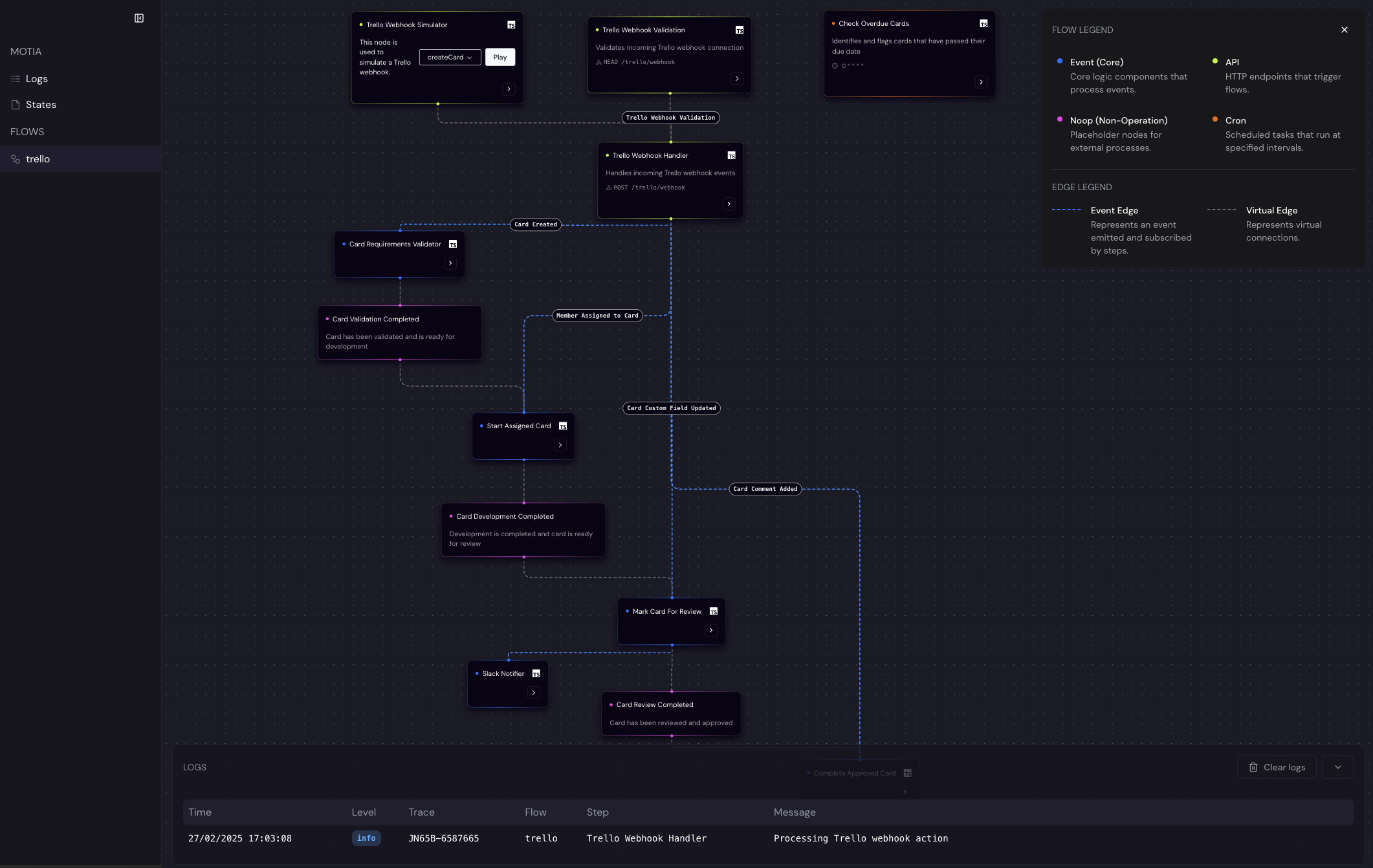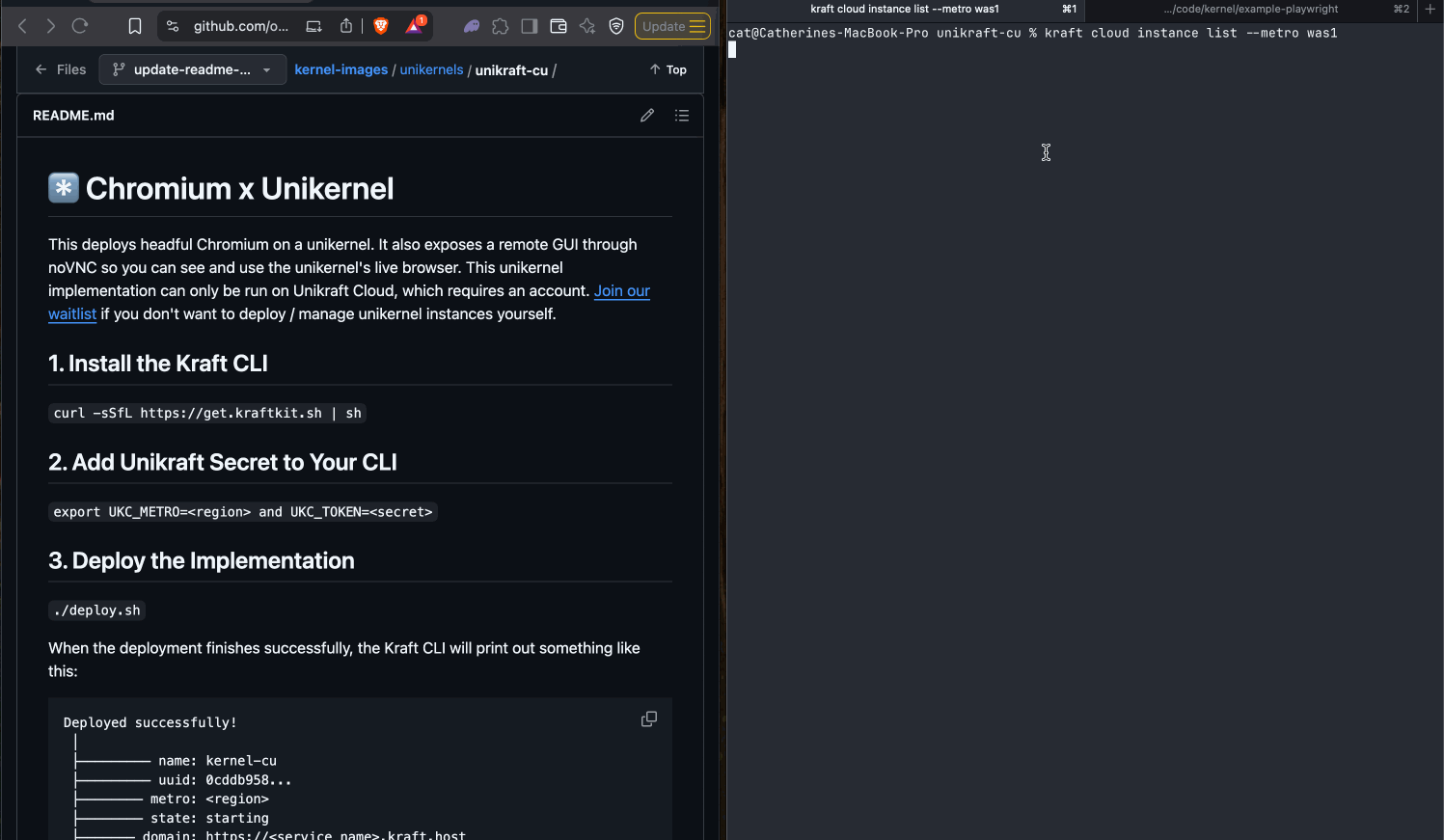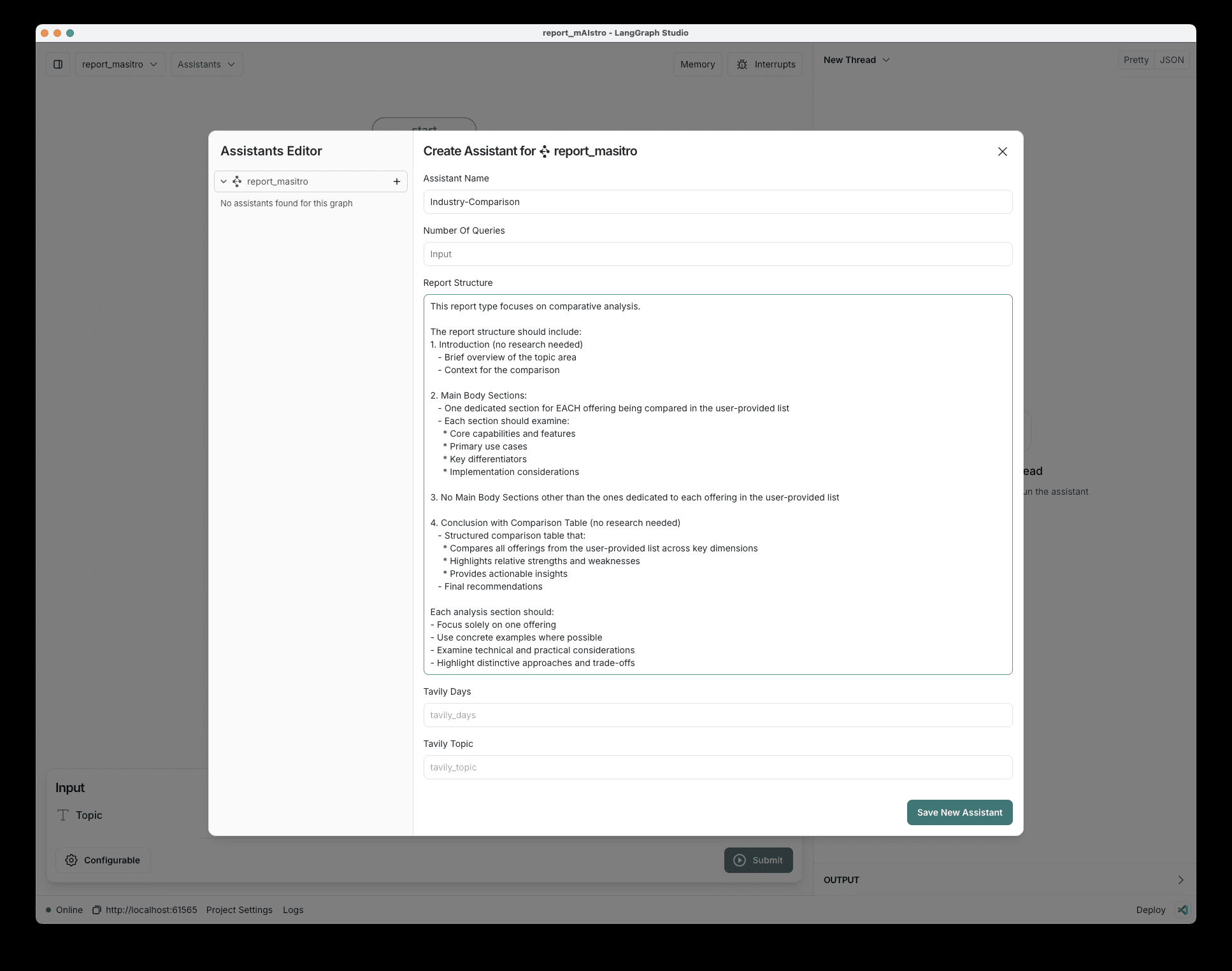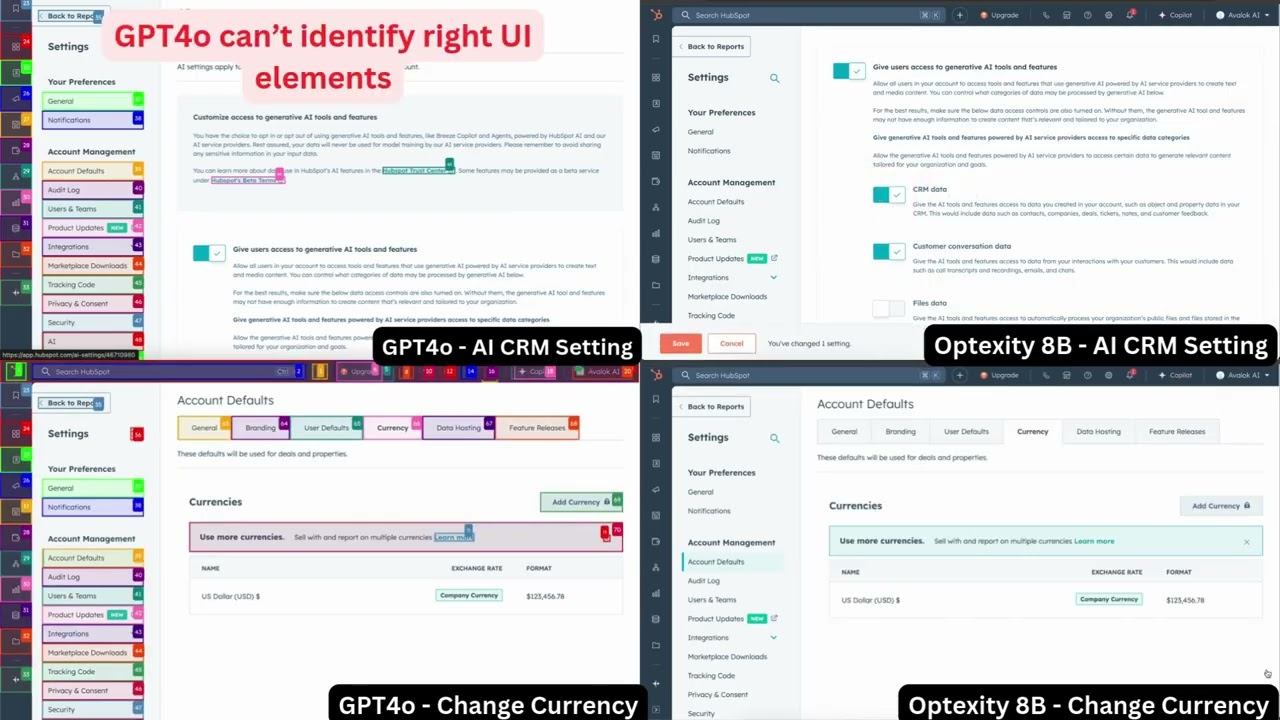Motia: a development framework for rapidly building intelligences in code
General Introduction
Motia is an open source AI agent framework for software engineers, hosted on GitHub and developed by the MotiaDev team. It enables developers to quickly write, test, and deploy intelligent agents in familiar programming languages (e.g. Python, TypeScript, Ruby). Motia is "code-first" and "event-driven" at its core, allowing developers to build production-ready automation systems without having to learn new syntax or complex configurations. It also offers Motia Workbench, a browser-based visualization tool to see agents in action in real time. As of March 2025, the latest versions are v0.1.0-beta.8, with positive community feedback, is suitable for teams that need to develop complex tasks efficiently.

Function List
- Code-first development: Write agent logic directly in Python, TypeScript, Ruby, and other languages.
- Multi-language support: You can mix different languages in the same agent, e.g. Python for data processing and TypeScript for type-checking.
- Event Driven Architecture: Trigger tasks through events, suitable for real-time response scenarios.
- Real-time visualization: Motia Workbench displays agent execution flow and logs.
- Modular steps: the agent consists of reusable steps that support input-output validation.
- One-Click Deployment: Deploy agents with a single command, no server administration experience required.
- API and Webhook: Automatically generate HTTP endpoints for external calls.
- Built-in debugging tools: real-time logs and execution graphs help troubleshoot problems.
- Flexible AI Integration: Supports any large model or vector database without limitations.
Using Help
The use of Motia is divided into three main steps: installation, development and deployment. Below is a detailed guide to help users get started quickly.
Installation process
- Preparing the environment
Requires Node.js (recommended version 16 or higher) and pnpm. check if it is installed:
node -v
pnpm -v
If you don't have it, visit the official Node.js website to download and install it, and then run it:
npm install -g pnpm
- Create a project
Initialize the project with the Motia CLI:
npx motia create -n my-first-agent
This generates a my-first-agent folder with sample steps and dependencies.
- Enter the catalog and start
Running:
cd my-first-agent
pnpm run dev
After launching, the browser opens http://localhost:3000If you want to see Motia Workbench, you can do so by default. default Process.
How to use the main features
The core of Motia is writing agent logic and real-time debugging. Here's how it works.
Writing Proxy Logic
- definition step
existstepsfolder to createreply.js::
export default async function handler({ input }) {
return { reply: `你好,${input.name}!有什么我可以帮你的吗?` };
}
- Creation Process
existflowsfolder to createsupport.js::export default { name: "support", steps: ["reply"], triggers: { api: true } }; - Test API
Restart the service (pnpm run dev), and then test it with curl:curl -X POST http://localhost:3000/support -H "Content-Type: application/json" -d '{"name": "李明"}'Returns the result as:
{"reply": "你好,李明!有什么我可以帮你的吗?"}
Using Motia Workbench
- View Process
existhttp://localhost:3000Open Workbench and selectsupportThe interface displays the step-by-step connection diagram. - real time testing
Click on the "Test" button and type in{"name": "张伟"}, after running, the chart is updated and the log window shows the execution details. - Debug Log
Logs are refreshed in real time. If there are errors, they are highlighted in red, and you can click on the steps to see the specific problem.
multilingual development
- Adding Python Steps
existstepsFolder Creationcalc.py::def handler(input): return {"result": input["number"] + 10} - Update process
modificationssupport.js::export default { name: "support", steps: ["reply", "calc"], triggers: { api: true } }; - Testing Hybrid Languages
Test with curl:curl -X POST http://localhost:3000/support -H "Content-Type: application/json" -d '{"name": "王芳", "number": 5}'Return:
{"reply": "你好,王芳!有什么我可以帮你的吗?", "result": 15}
event-driven task
- Configuring Events
modificationssupport.js::export default { name: "support", steps: ["reply"], triggers: { event: "messageReceived" } }; - trigger event
Send events using the CLI:npx motia emit --topic messageReceived --message '{"name": "赵强"}'Workbench displays the results of the execution.
Deployment Agent
- Packaging Program
Running:pnpm build - deployments
Upload the file to the server and run it:pnpm run startOnce deployed, the agent can be invoked via API or event.
Featured Function Operation
Integration with external APIs
- Add OpenAI
existstepsestablishanalyze.js::import { OpenAI } from 'openai'; const openai = new OpenAI({ apiKey: process.env.OPENAI_API_KEY }); export default async function handler({ input }) { const response = await openai.chat.completions.create({ model: "gpt-4o", messages: [{ role: "user", content: input.text }] }); return { result: response.choices[0].message.content }; } - Update process and test
Add to the processanalyzeThe input text is analyzed using the API test.
Visual Customization
exist steps Add UI configurations to the steps in Workbench, and Workbench displays a customized interface to enhance the visualization experience.
application scenario
- Financial Analysis Agent
Listen to market data updates, combine web search and AI analysis to generate investment recommendations. Ideal for real-time decision-making by financial teams. - GitHub Management Agent
Automatically categorize GitHub issues and pull requests, assign tags and reviewers, and improve team collaboration. - Mailbox automation
Monitor your Gmail inbox, analyze the content of your emails and auto-respond to them, perfect for customer service or personal efficiency. - Task management optimization
Automatically move task cards around on Trello, generate summaries and notify Slack to simplify project management. - Knowledge Quiz System
expense or outlay RAG The technology extracts web content and builds a Q&A agent, suitable for education or customer service scenarios.
QA
- What problem does Motia solve?
It simplifies the process of building complex AI agents, providing code control and visualization tools that avoid the limitations of traditional tools. - What AI models are supported?
Motia does not limit models and can be used with OpenAI, Hugging Face or other services. - How do I extend the functionality?
Support arbitrary languages and external API integration by adding new steps and processes.
© Copyright notes
Article copyright AI Sharing Circle All, please do not reproduce without permission.
Related posts

No comments...




